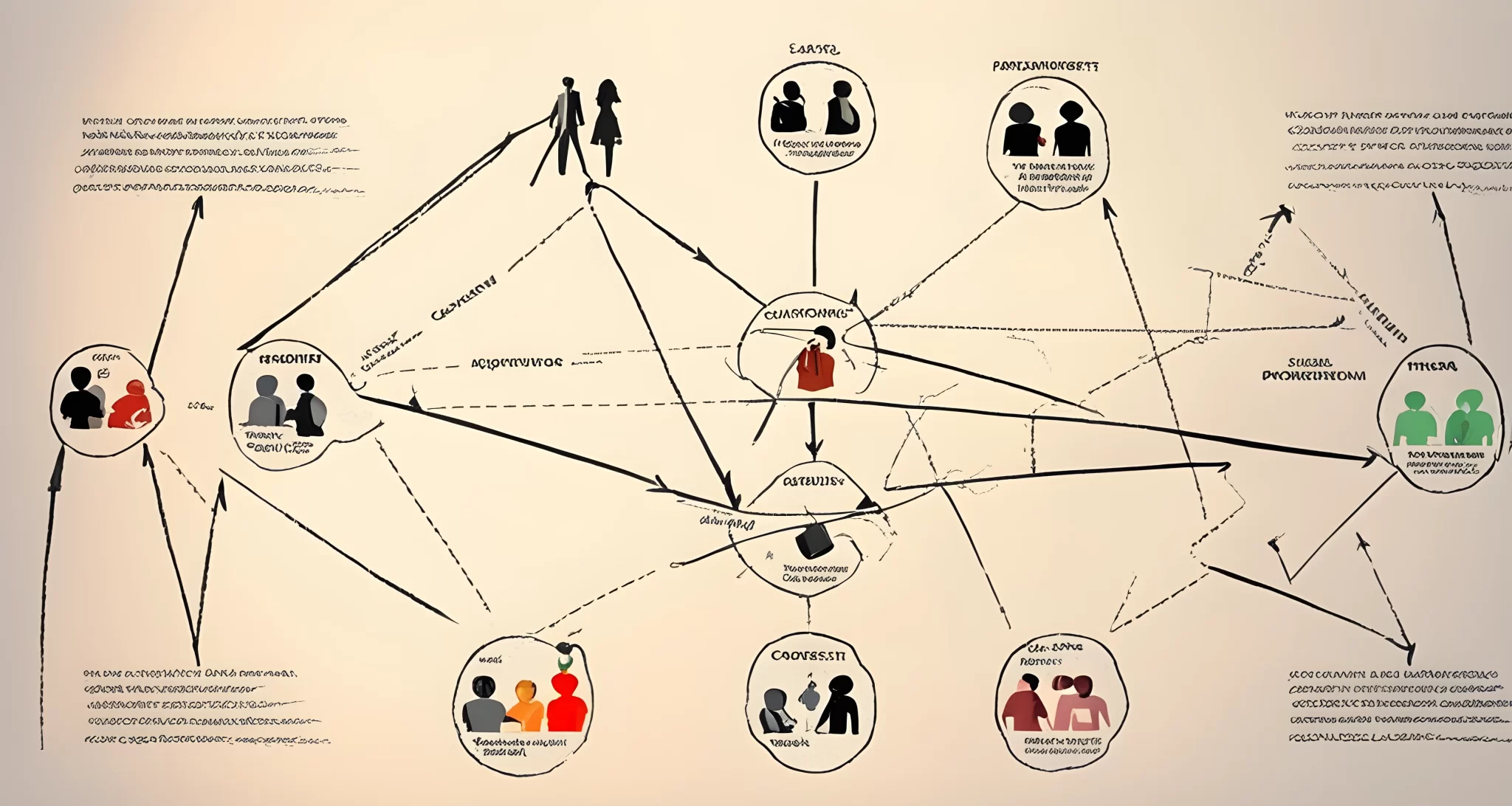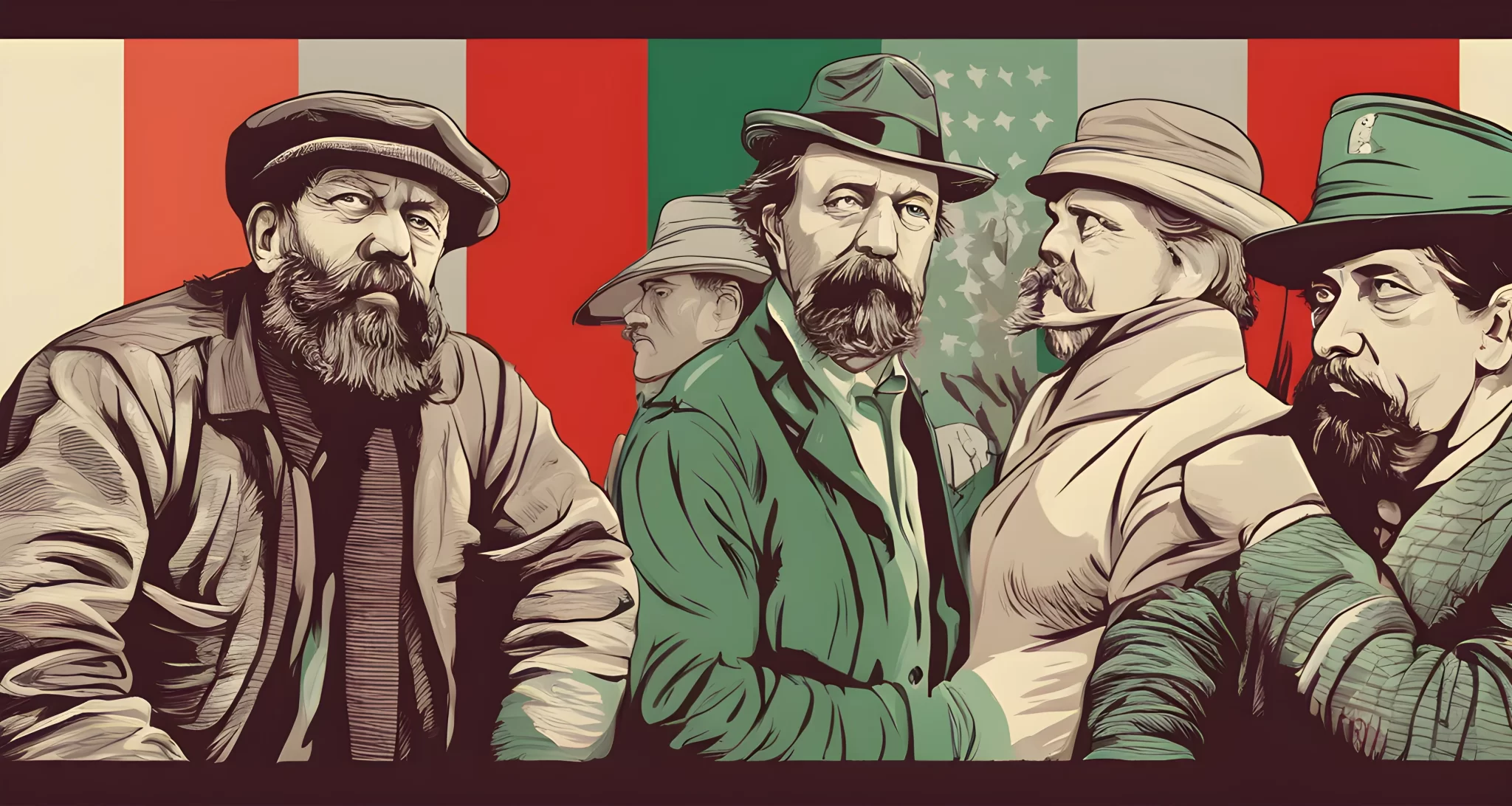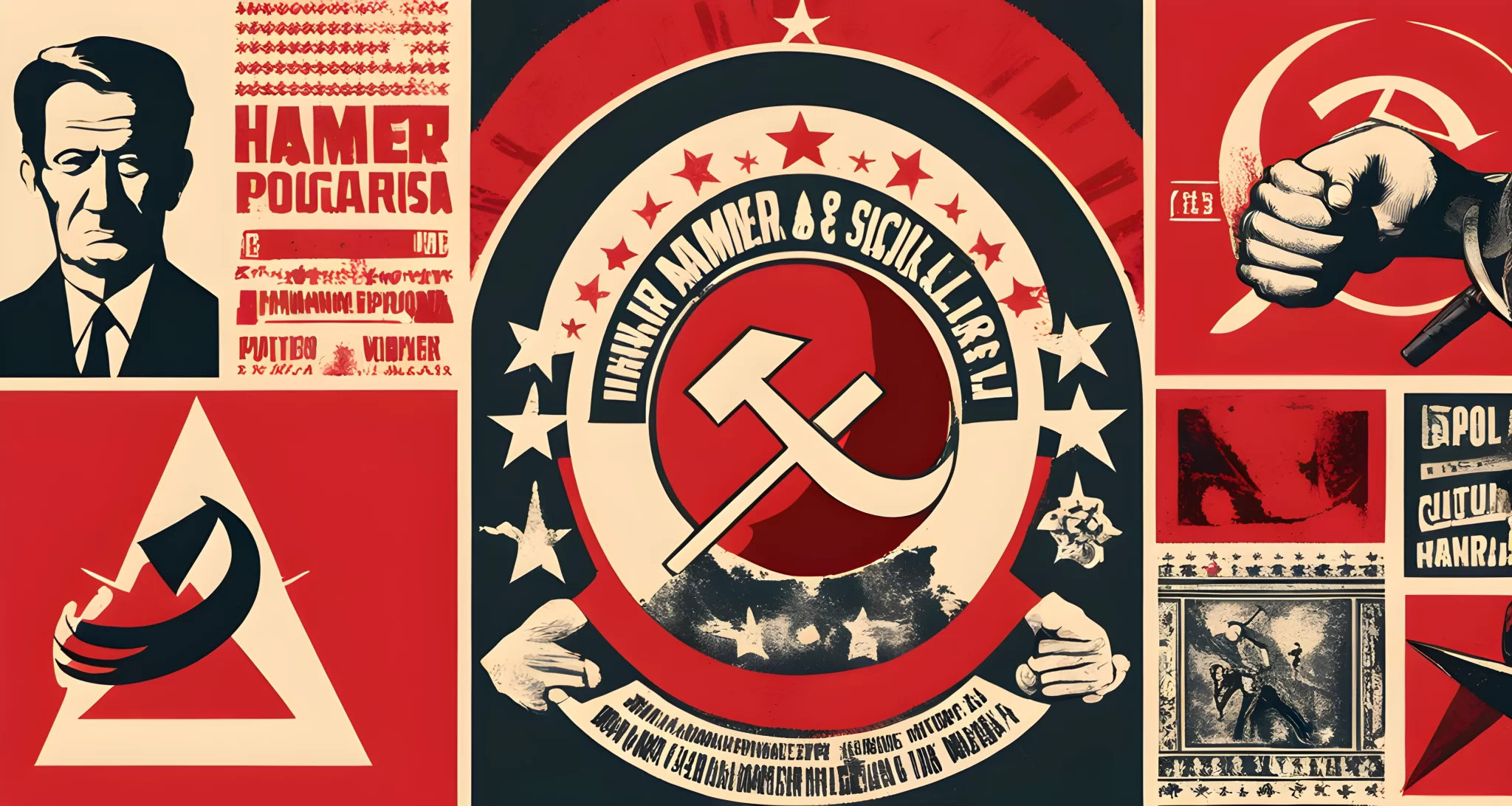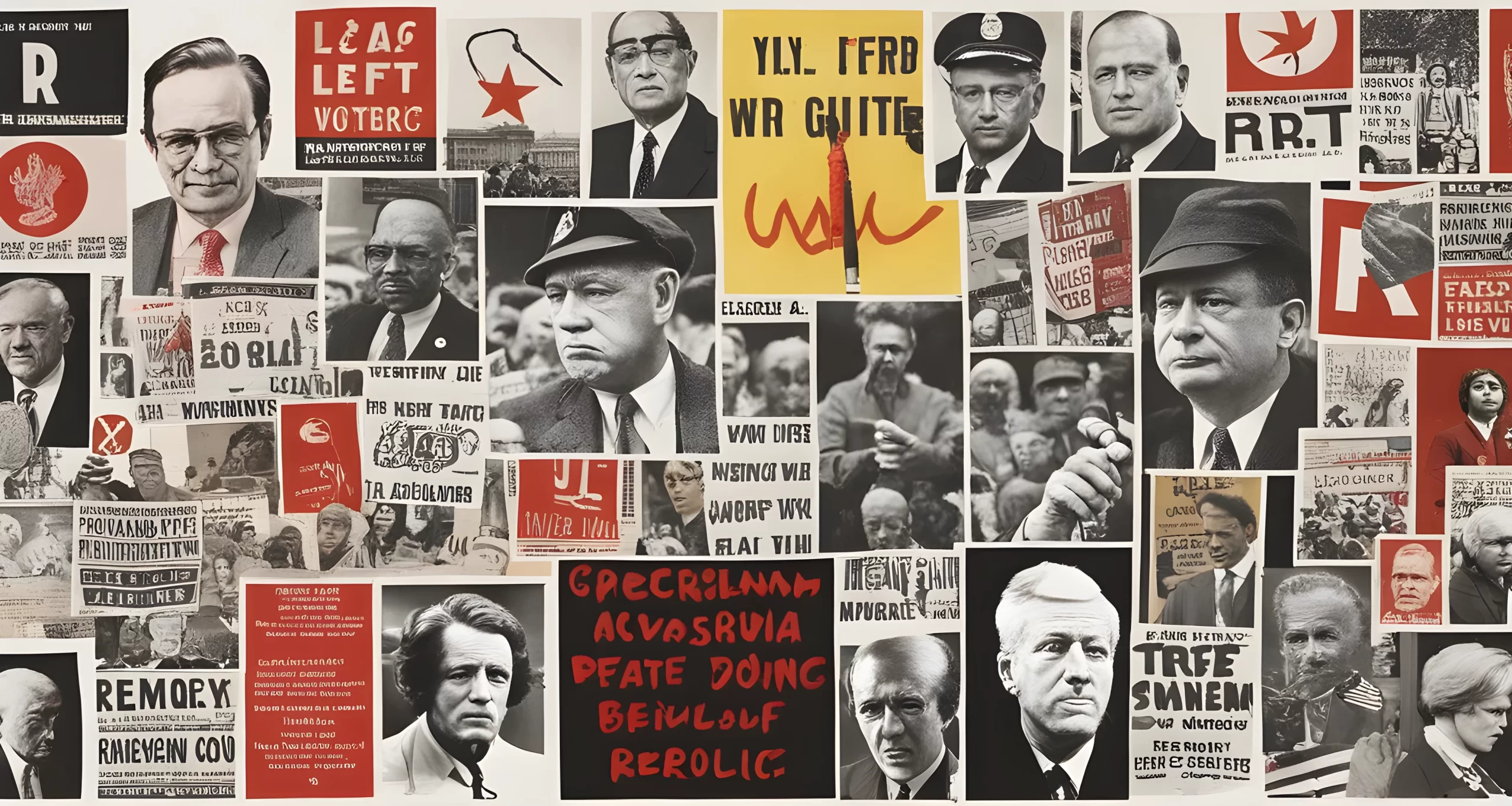Introduction
Cultural Marxism: The Conspiracy Theory Explained
What is Cultural Marxism?
The concept of "Cultural Marxism" refers to a conspiracy theory that has gained traction among some on the right-wing political spectrum. At its core, it posits that a group of Jewish intellectuals, known as the Frankfurt School, who fled Germany in the 1930s and settled at Columbia University, planned to infiltrate and subvert American culture by promoting progressive values such as social justice, feminism, and multiculturalism. This theory is often linked to anti-Semitic beliefs and is seen as a way to demonize and undermine social movements and individuals who support these values.
Understanding the Controversy
The spread of this conspiracy theory has led to widespread debate and controversy. Some individuals and groups have used it as a tool to discredit social justice movements and progressive ideologies. Furthermore, it has been criticized for promoting anti-Semitic sentiments and undermining the legitimate struggles for equality and diversity.
Exploring the Impact
The implications of this theory have had far-reaching effects on society, influencing political discourse, social movements, and public perception of certain cultural values. Despite being debunked by many scholars and experts, the concept continues to thrive in certain online communities and political circles.
To dive deeper into conspiracy theories, check out False flags not mere hoaxes.

The Origins of Cultural Marxism
The theory of Cultural Marxism traces its roots back to a group of intellectuals who were associated with critical theory. This group aimed to dismantle traditional American values such as Christianity, family, and morality. The theory suggests that these intellectuals sought to create a society where people feel guilty about their privileges and are more likely to adopt far-left ideologies.
An important point to note is that this narrative is often tied to anti-Semitic stereotypes, portraying Jews as the primary architects of this supposed cultural subversion. It’s crucial to recognize and challenge the harmful effects of such stereotypes.
-
Critical Theory Intellectuals
- Known for their work in critical theory
- Aimed to dismantle traditional American values
- Claimed to have sought to create a guilt-ridden society
-
Anti-Semitic Stereotypes
- Portraying Jews as primary architects of cultural subversion
- Harmful effects on society and individuals
The spread of this conspiracy theory has had significant social and cultural impacts, influencing perceptions and attitudes towards certain groups. To further explore the societal implications, it’s important to consider the concept of false memories and how they can impact beliefs and behaviors Memory manipulation critique.
Understanding the origins of Cultural Marxism provides valuable insight into the development and dissemination of this conspiracy theory, shedding light on its potential implications for society at large.

Key Concepts of Cultural Marxism
Cultural Marxism revolves around several key concepts that are central to the conspiracy theory. Understanding these concepts is crucial in grasping the impact of this theory on society.
Erosion of Traditional American Values
- Prominent figures like Pat Buchanan, William Lind, and Gerald Atkinson have used cultural Marxism to critique what they perceive as the erosion of traditional American values.
- This concept focuses on the idea that certain ideologies and movements are undermining the core values that have historically defined American society.
Link to Violence
- Cultural Marxism has been linked to acts of violence, as evidenced by the case of Anders Breivik, who cited it as a motivation for his heinous actions in 2011.
- This connection highlights the potential dangers of embracing and perpetuating this conspiracy theory.
Popularization by Prominent Figures
- The theory has been popularized by influential individuals who have used it as a lens through which to view societal changes and criticize ideological shifts.
- This has led to its widespread dissemination and influence within certain circles.
Understanding these key concepts provides insight into the motivations behind those who espouse cultural Marxism and sheds light on its potential impact on society. It is important to critically examine and debunk this conspiracy theory in order to address its negative implications Catholic Sect delve.

The Spread of the Conspiracy Theory
The concept of "Cultural Marxism" has been the subject of a widespread conspiracy theory that has gained traction in recent years. This theory alleges that a group of Jewish intellectuals from the Frankfurt School, who settled at Columbia University in the 1930s, aimed to subvert traditional American values and promote far-left ideologies through the promotion of progressive values such as social justice, feminism, and multiculturalism. The spread of this conspiracy theory has led to various misconceptions and misunderstandings about Cultural Marxism.
Misconceptions Surrounding Cultural Marxism
- The conspiracy theory has led to the belief that Cultural Marxism is a deliberate attempt to undermine Western society.
- It has also fueled anti-Semitic sentiments by falsely associating the Frankfurt School with a Jewish plot to control society.
Influence on Public Perception
- The spread of this conspiracy theory has led to a rise in right-wing extremism and anti-Semitic rhetoric.
- It has also contributed to the polarization of political discourse and the demonization of progressive ideologies.
External Influences
The dissemination of this conspiracy theory has been perpetuated by certain media outlets and online platforms, which have amplified its reach and impact.
The origins and spread of the Cultural Marxism conspiracy theory are complex and multifaceted. To gain a deeper understanding of its impact, it is important to consider the broader context of influential families and their connections to historical events, such as the Unrivaled influence Rothschilds.

Debunking Cultural Marxism
Cultural Marxism has gained traction as a conspiracy theory, but it is important to debunk some of the myths and misconceptions surrounding this controversial idea. Here are some key points to consider when examining the validity of the Cultural Marxism conspiracy theory:
-
Historical Inaccuracy: The concept of Cultural Marxism is often based on a misinterpretation of the Frankfurt School’s critical theory. It is important to understand that the Frankfurt School was a group of scholars focused on examining the cultural and social implications of capitalism, rather than orchestrating a covert ideological takeover.
-
Political Agenda: While proponents of the Cultural Marxism conspiracy theory often link it to a supposed liberal agenda, it is crucial to recognize that this theory has been used as a tool for political manipulation and fearmongering. The idea of "Cultural Marxism" has been exploited by individuals with conservative ideologies to spread fear and division.
-
Association with Violence: The association of Cultural Marxism with violent acts, such as in the case of Anders Breivik, does not hold up under scrutiny. The actions of individuals who commit acts of violence cannot be attributed to an entire ideological framework, and it is important to avoid drawing simplistic cause-and-effect conclusions.
As with any conspiracy theory, it is crucial to approach the concept of Cultural Marxism with a critical mindset. By examining historical accuracy, political agendas, and associations with violence, we can debunk the myths and misconceptions surrounding this controversial theory.
For more information on global conspiracy theories, you can also read about the Conspiracy Group Bilderberg and their alleged influence on world events.

Impact on Society
The impact of Cultural Marxism on society has been a topic of much debate and controversy. Critics of the theory argue that it has led to the erosion of traditional values and norms, while proponents believe it has contributed to progress and social justice.
Polarization
- Cultural polarization has been a significant impact of the theory, leading to heightened tensions between different social groups. This has resulted in a more divided society, with an "us vs them" mentality.
Media Influence
- The theory has also influenced media representation, with some arguing that it has led to the promotion of certain ideologies while marginalizing others.
Political Discourse
- Cultural Marxism has impacted political discourse, contributing to the rise of identity politics and the increased focus on issues related to race, gender, and sexuality.
Economic Policies
- Some believe that the theory has influenced economic policies, leading to more government intervention and regulation in the market.
Social Movements
- The theory has played a role in shaping social movements and activism, with some arguing that it has empowered marginalized groups to fight for their rights and representation.
Overall, the impact of Cultural Marxism on society is complex and multifaceted. While some believe it has contributed to positive social change, others argue that it has led to division and conflict. Regardless of one’s stance on the theory, its influence can be seen across various aspects of modern society.
For more information on conspiracy theories, check out Bitcoin conspiracy creation.
FAQ
What is the concept of ‘cultural marxism’?
The concept of ‘cultural marxism’ refers to a conspiracy theory that posits a group of jewish intellectuals, known as the frankfurt school, planned to infiltrate and subvert american culture by promoting progressive values such as social justice, feminism, and multiculturalism.
What are the core beliefs of the ‘cultural marxism’ theory?
The theory claims that the frankfurt school intellectuals aimed to dismantle traditional american values like christianity, family, and morality, and create a society where people feel guilty about their privileges and are more likely to adopt far-left ideologies.
Who has popularized the ‘cultural marxism’ theory?
The theory has been popularized by prominent figures such as pat buchanan, william lind, and gerald atkinson, who have used it to criticize the erosion of traditional american values.
Has the ‘cultural marxism’ theory been linked to violence?
Yes, the theory has been linked to violence, as seen in the case of anders breivik, who in 2011 killed 77 people in norway, citing ‘cultural marxism’ as a motivation.
